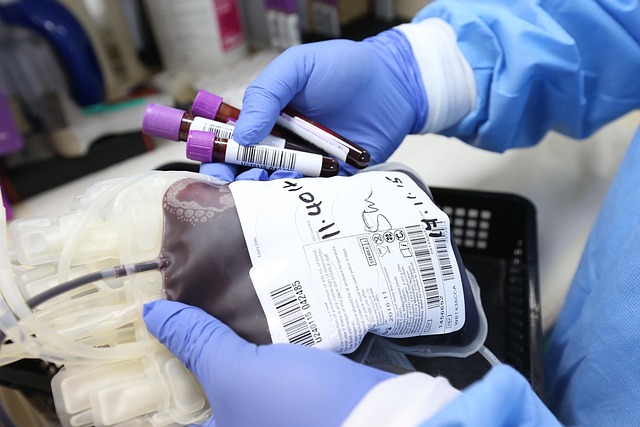Essential Guide to Buying Bank-Owned Rural Properties
Explore how to find and evaluate bank-owned rural properties for sale. This guide explains what to expect during the purchase process, important considerations before buying, and tips for making informed decisions when exploring real estate opportunities in rural areas.

What Are Bank-Owned Rural Properties?
Bank-owned rural properties are foreclosed real estate assets located in non-urban areas that financial institutions have repossessed after the previous owners defaulted on their mortgage obligations. Unlike urban or suburban foreclosures, rural bank-owned properties often feature larger land parcels, agricultural components, or specialized structures like barns, silos, or irrigation systems. These properties may include farmland, ranches, woodland areas, or country homes with acreage. The foreclosure process typically involves multiple stages, beginning with mortgage default, proceeding through foreclosure proceedings, and culminating in ownership transfer to the lender if the property fails to sell at auction. Once banks take possession, these properties become REOs and are listed for sale, often at prices below market value to expedite removal from the lender’s balance sheet.
How Can You Find Listings For Rural Bank-Owned Properties?
Finding bank-owned rural properties requires specific search strategies that differ from conventional real estate hunting. Multiple resources can help prospective buyers locate these opportunities:
-
Bank REO departments and websites - Many financial institutions maintain dedicated REO sections on their websites, listing foreclosed properties in their inventory.
-
Multiple Listing Service (MLS) - Working with a real estate agent who specializes in rural or foreclosed properties provides access to the MLS, where many bank-owned properties are listed.
-
Online foreclosure databases - Websites like Zillow, RealtyTrac, Foreclosure.com, and Hubzu specifically feature foreclosed properties, including those in rural areas.
-
Government agencies - The USDA, Fannie Mae, Freddie Mac, and HUD occasionally list rural properties they’ve acquired through loan defaults.
-
County courthouse records - Foreclosure notices are typically filed with local county offices, providing early information about properties entering the foreclosure process.
For best results, combine multiple search methods and consider setting up automated alerts for new listings that match your criteria in your target areas.
What Should Buyers Consider Before Purchasing?
Rural bank-owned properties present unique considerations that urban property purchases might not entail. Prospective buyers should carefully evaluate:
Property condition - Bank-owned rural properties often suffer from deferred maintenance or neglect during the foreclosure process. Agricultural structures may need significant repairs, while land might require rehabilitation after periods of neglect. Budget accordingly for necessary improvements.
Land assessment - Evaluate soil quality, drainage patterns, water rights, mineral rights, and potential environmental issues. These factors significantly impact property value and usability, especially for agricultural purposes.
Accessibility and utilities - Confirm road access rights, seasonal accessibility, and the availability and condition of utilities like electricity, water, sewage systems, and internet connectivity, which can be limited in remote areas.
Zoning and restrictions - Research applicable zoning laws, conservation easements, agricultural commitments, and development restrictions that may limit how you can use the property.
Boundary verification - Rural properties may have unclear boundaries or disputed property lines. A professional survey is often essential to confirm exact property dimensions.
Potential revenue sources - If purchasing for investment, research agricultural subsidies, timber values, recreational leasing potential, or other income opportunities specific to rural properties.
How Does The Buying Process For Bank-Owned Rural Properties Work?
The acquisition process for bank-owned rural properties follows a specialized timeline and procedure:
-
Financial preparation - Secure financing pre-approval before beginning your search. Rural property financing often requires specialized lenders familiar with agricultural or large-acreage property valuation.
-
Property identification and inspection - Once you’ve identified a property, conduct thorough inspections, including specialized assessments for wells, septic systems, soil quality, and structures.
-
Offer submission - Bank-owned property offers typically require submission on specific forms with earnest money deposits. Some banks use standardized purchase agreements with limited room for negotiation.
-
Acceptance and due diligence - Upon offer acceptance, conduct comprehensive due diligence, including title searches, survey verification, environmental assessments, and water testing.
-
Financing finalization - Complete the loan application process, which may require additional property-specific appraisals or assessments for rural properties.
-
Closing - The closing process often involves additional documentation specific to rural properties, such as water rights transfers, agricultural program enrollments, or conservation easement acknowledgments.
Banks typically sell properties “as-is,” with limited warranties or representations about property condition. This places additional importance on thorough due diligence before finalizing purchases.
What Are The Potential Benefits And Challenges?
Bank-owned rural properties present distinct advantages and disadvantages compared to traditional real estate transactions:
Benefits:
-
Discounted pricing - REO properties often sell below market value as banks seek to remove non-performing assets from their books
-
Reduced competition - Rural properties attract fewer buyers than suburban or urban alternatives
-
Clear title - Banks typically resolve outstanding liens and title issues before selling
-
Negotiation potential - Banks may be flexible on terms to facilitate sales, especially for properties that have been in inventory long-term
-
Investment opportunity - Properly rehabilitated rural properties can yield strong returns through agricultural production, recreation, or eventual resale
Challenges:
-
Property condition - Deferred maintenance may require substantial investment
-
Limited financing options - Some lenders avoid rural foreclosures or require larger down payments
-
Complex valuation - Determining appropriate value for rural properties with unique features can be difficult
-
Extended timelines - Bank bureaucracy can slow transaction processes compared to traditional sales
-
Specialized knowledge requirements - Buyers need familiarity with agricultural practices, land management, water rights, and rural infrastructure
Rural bank-owned properties can offer exceptional value for prepared buyers who understand both the opportunities and complexities involved. The key to successful acquisition lies in thorough research, appropriate expert consultation, and realistic expectations about both the purchasing process and post-acquisition requirements.




